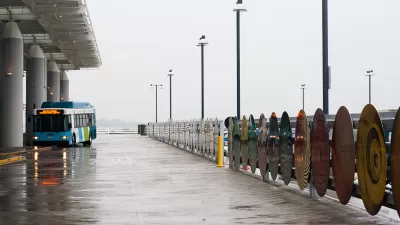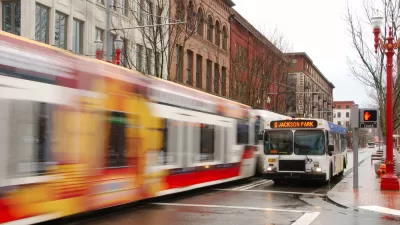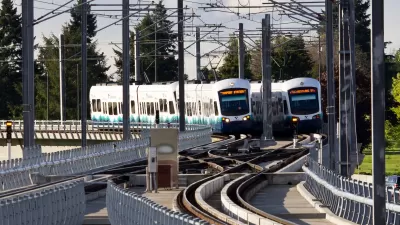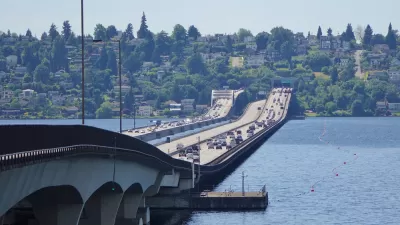For all the attention paid the transit investments of cities like New York City and Los Angeles, it's actually cities like Seattle and Denver spending the most per capita on capital investments in transit.

David Gurtman reports data from the Federal Transit Administration about how much each urban area (as defined by the Census Bureau) spends per capita on capital investment in transit systems.
The data show that even before Sound Transit 3 spending went into effect, "the Seattle region was already spending more, per capita, on new buses, trains and other transit projects than any other major city in the country."
"For each person in the Seattle urban area, local transit agencies spent nearly $400 on capital expenses in 2015, the highest such figure in the country," adds Gurtman. As for why Seattle's transit investment costs so much, Gurtman cites Scott Rutherford, a transportation engineering professor at the University of Washington and the director of the university’s Sustainable Transportation Program:
One reason, as Rutherford said, is that we’re just now building systems that other cities built decades ago. Another reason: Puget Sound. Spending by Washington State Ferries is included in Seattle’s total. That’s something that cities less interlaced with water don’t have to deal with.
As for the rest of the list, Denver-Aurora comes in second, followed by San Francisco-Oakland, San Jose, and Washington, D.C.
FULL STORY: Seattle area spends most per capita to build transit and here’s why

Alabama: Trump Terminates Settlements for Black Communities Harmed By Raw Sewage
Trump deemed the landmark civil rights agreement “illegal DEI and environmental justice policy.”

Planetizen Federal Action Tracker
A weekly monitor of how Trump’s orders and actions are impacting planners and planning in America.

The 120 Year Old Tiny Home Villages That Sheltered San Francisco’s Earthquake Refugees
More than a century ago, San Francisco mobilized to house thousands of residents displaced by the 1906 earthquake. Could their strategy offer a model for the present?

In Both Crashes and Crime, Public Transportation is Far Safer than Driving
Contrary to popular assumptions, public transportation has far lower crash and crime rates than automobile travel. For safer communities, improve and encourage transit travel.

Report: Zoning Reforms Should Complement Nashville’s Ambitious Transit Plan
Without reform, restrictive zoning codes will limit the impact of the city’s planned transit expansion and could exclude some of the residents who depend on transit the most.

Judge Orders Release of Frozen IRA, IIJA Funding
The decision is a victory for environmental groups who charged that freezing funds for critical infrastructure and disaster response programs caused “real and irreparable harm” to communities.
Urban Design for Planners 1: Software Tools
This six-course series explores essential urban design concepts using open source software and equips planners with the tools they need to participate fully in the urban design process.
Planning for Universal Design
Learn the tools for implementing Universal Design in planning regulations.
Clanton & Associates, Inc.
Jessamine County Fiscal Court
Institute for Housing and Urban Development Studies (IHS)
City of Grandview
Harvard GSD Executive Education
Toledo-Lucas County Plan Commissions
Salt Lake City
NYU Wagner Graduate School of Public Service





























